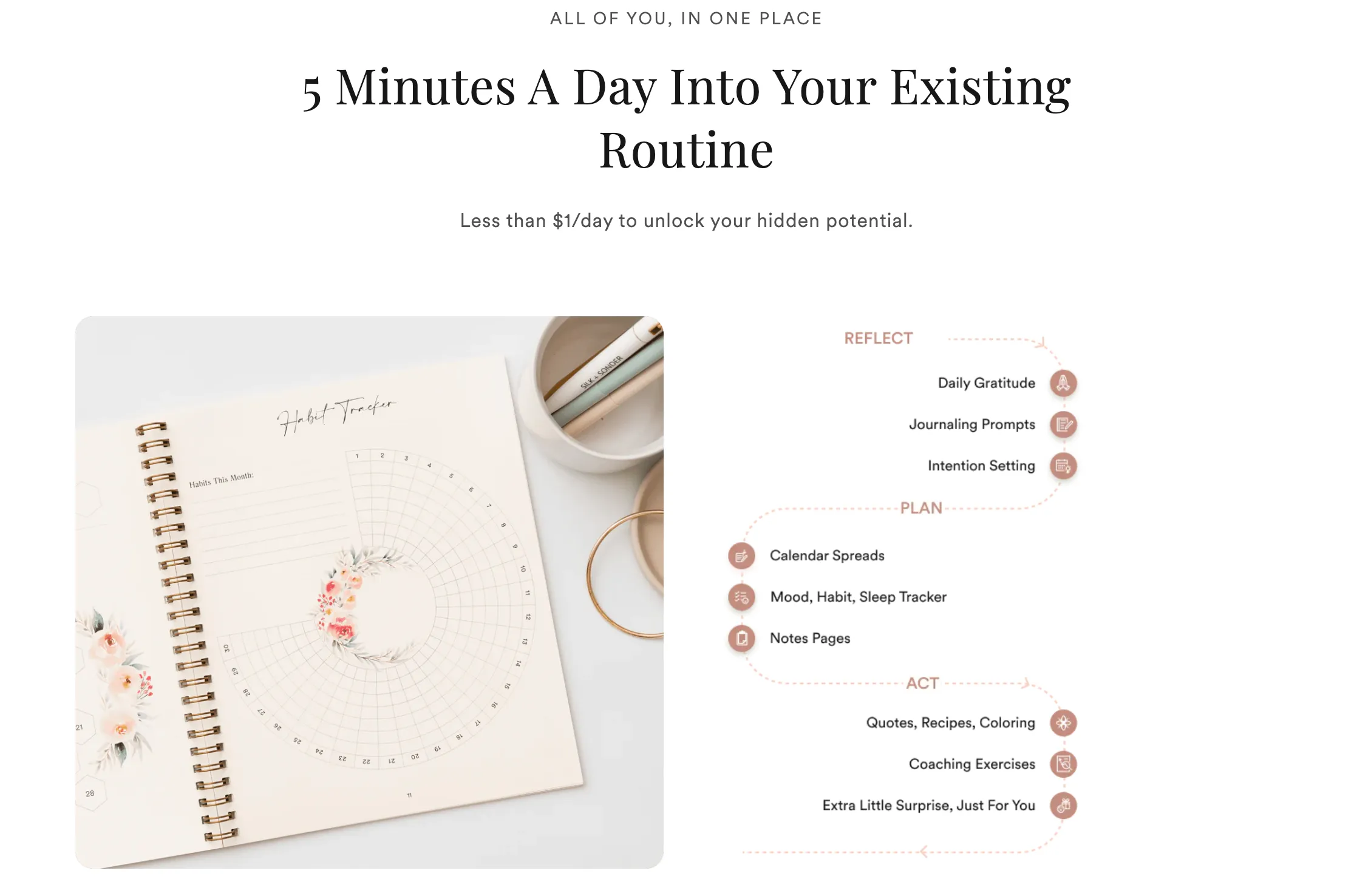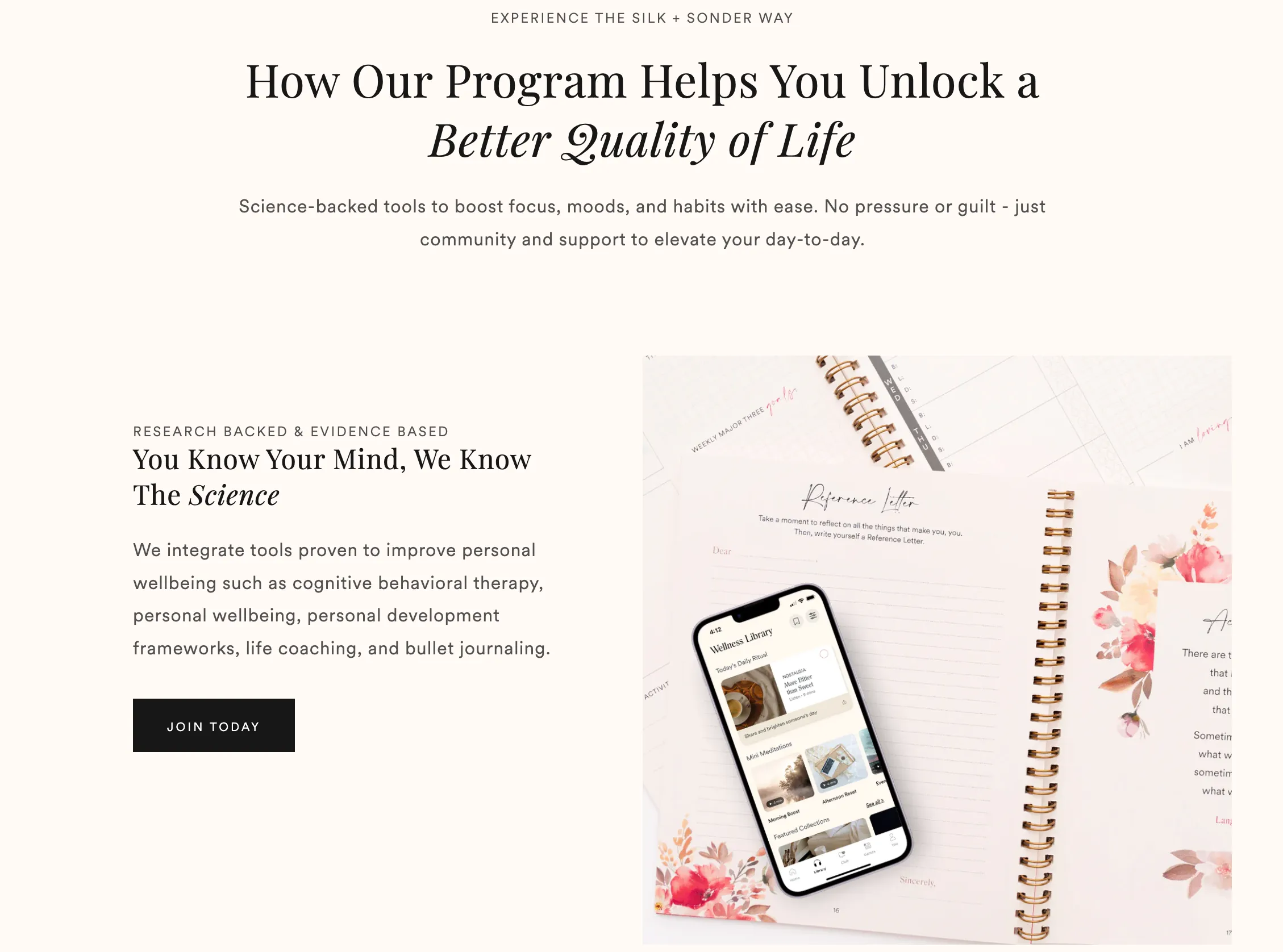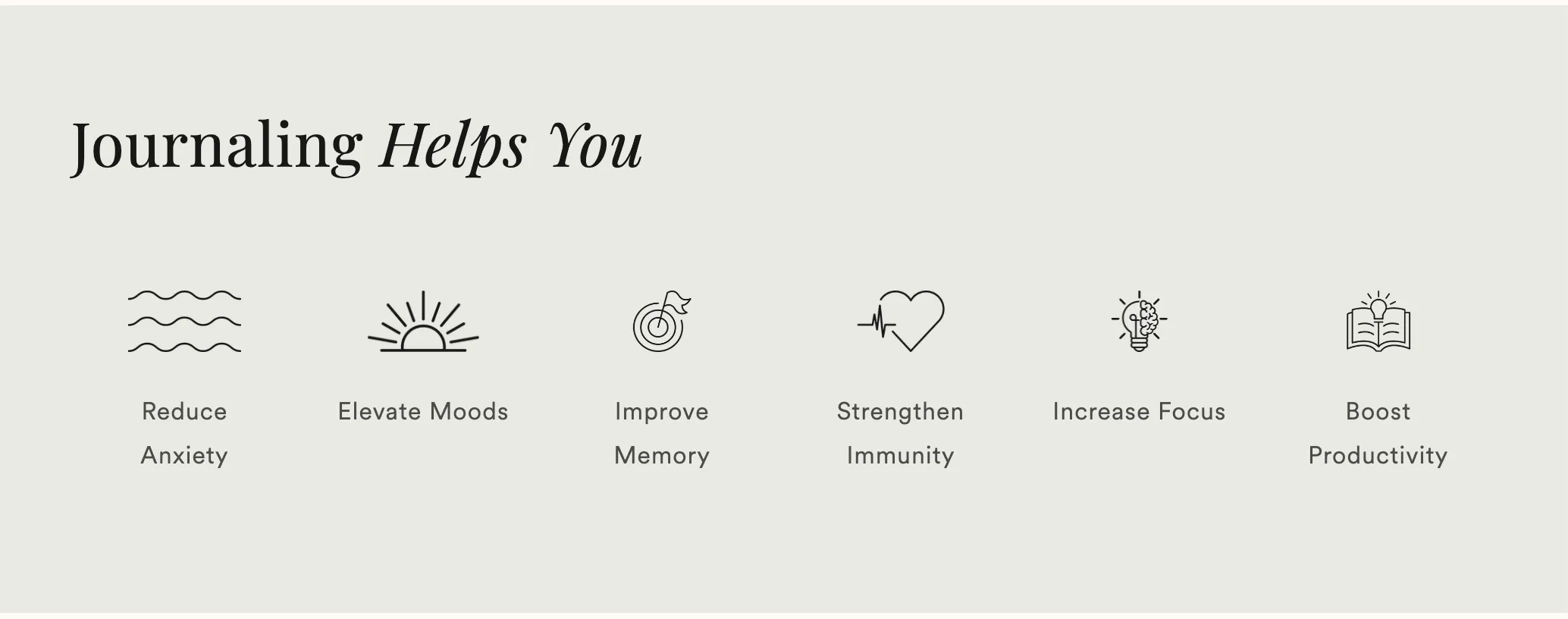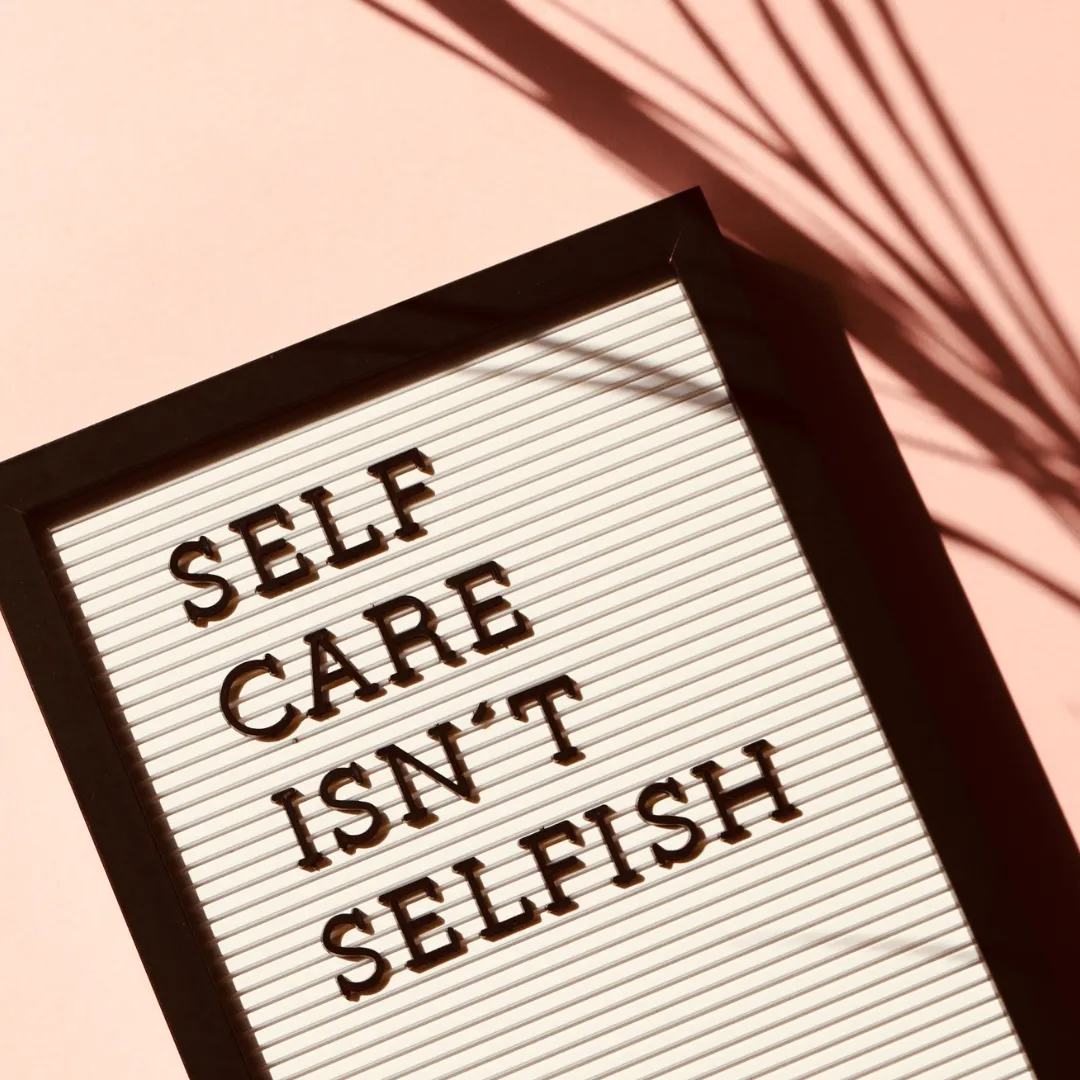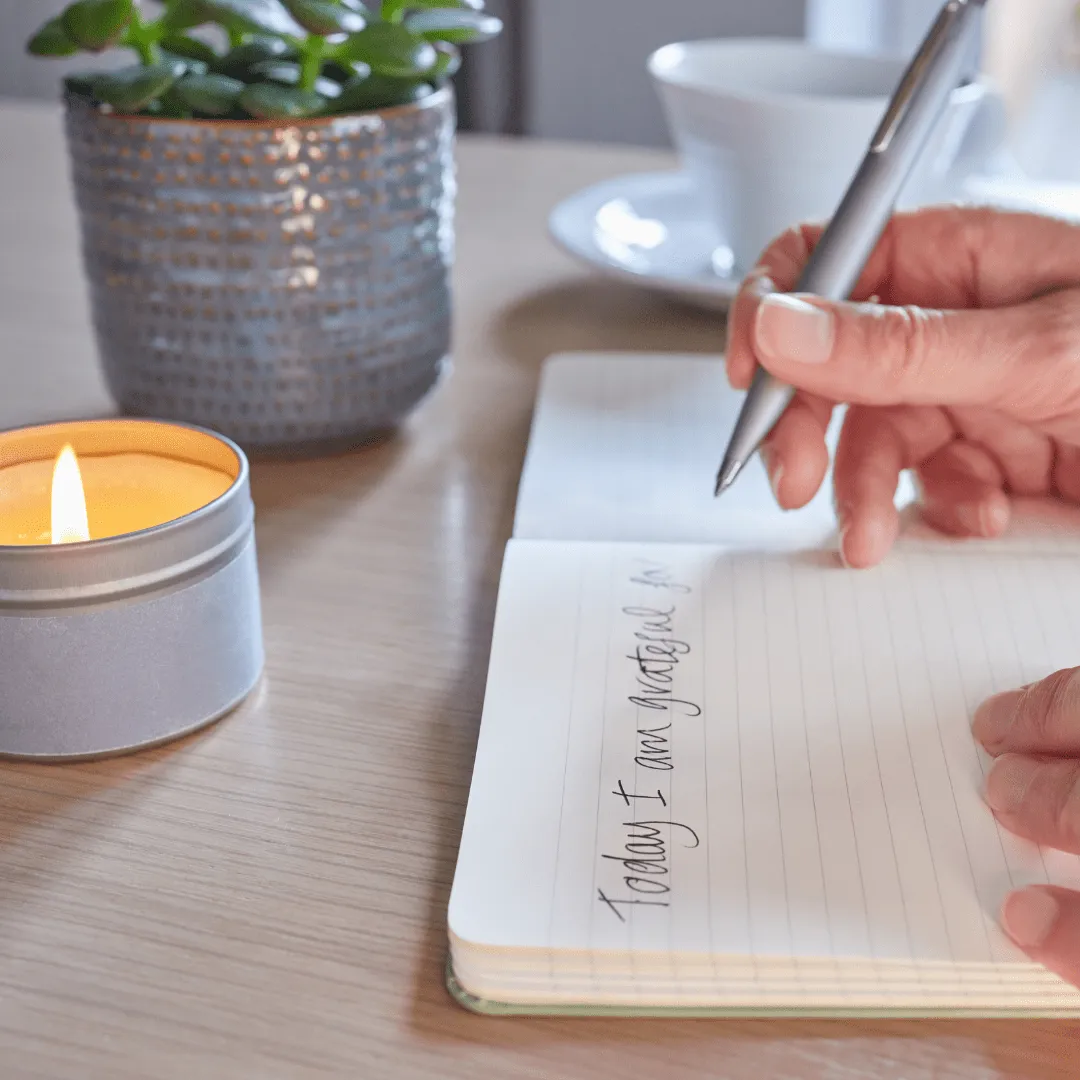Boost Your Well-being: Why Mindful Journaling Should Be Your New Self-Care Habit
[Disclaimer: This post contains an affiliate link. If you purchase a product or service through the link, I may receive a small commission, which helps to support the site. The opinions expressed on our site are our own and not influenced by any affiliate commissions we may receive. Please Read Our Full Disclosure Here.]

In today's relentless world, it's easy to get swept away by the constant demands on our time and energy. Between work, family, and the ever-present pull of technology, we often neglect the most crucial person: ourselves. This is where the concept of self-care comes in.
Self-care isn't about indulging in occasional luxuries; it's about consciously nurturing your physical, mental, and emotional well-being. It's about refilling your cup to show up as your best self for yourself and those around you.
One powerful tool for cultivating self-care is mindful journaling. This practice goes beyond simply writing down your thoughts and feelings. It's about focusing on the present moment and observing your inner world without judgment.
Mindful journaling offers many potential benefits, from reducing stress and anxiety to boosting self-awareness and improving sleep. It can be a haven for self-reflection and a springboard for personal growth.
Ready to embark on your mindful journaling journey? Consider starting with a guided self-care journal, like the one offered by Silk and Sonder. This beautiful resource provides prompts and exercises to help you explore various aspects of your well-being, making it easier to cultivate a consistent journaling practice and reap its many benefits.
[Click on the image to learn more about Silk and Sonder]
So, take a deep breath, carve out some precious time for yourself, and let mindful journaling be your oasis amid the daily whirlwind. You deserve it!
Beyond the Pen: Unveiling Mindful Journaling
While traditional journaling has long been a haven for expressing thoughts and experiences, mindful journaling takes this practice to a deeper level. It's a self-reflective journey that uses writing as a tool to connect with your inner self and foster present-moment awareness.
Imagine mindful journaling as stepping back from the daily rush and turning your gaze inward. Unlike traditional journaling, which might involve chronicling daily events or processing past experiences, mindful journaling emphasizes being present in the moment. You observe your thoughts and feelings, acknowledging them without judgment or criticism.
Think of it like this: traditional journaling might be like capturing snapshots of your life, while mindful journaling is like holding a magnifying glass to your present experience, examining it with curiosity and acceptance. This non-judgmental observation allows you to understand better your inner world, including your emotions, thoughts, and underlying patterns.
The essence of mindful journaling is honing your awareness of the present moment. It's about quieting the mental chatter and observing what arises within you without getting caught up in judgment or analysis. This practice fosters a deeper connection with your authentic self and paves the way for personal growth and well-being.
Untangling the Knot: How Mindful Journaling Reduces Stress
In today's world, stress often feels like a constant companion. Deadlines loom, anxieties mount, and the relentless cycle can overwhelm and drain us. But there's good news: mindful journaling can be a powerful tool for taming stress and promoting a sense of calm.
One critical benefit of mindful journaling is its ability to facilitate emotional processing. Putting pen to paper allows us to explore and express our emotions in a safe and non-judgmental space. This can be particularly helpful for negative emotions like anger, frustration, or anxiety. By acknowledging and expressing these feelings, we can release their hold on us, lessening their grip and ultimately reducing overall stress.
Furthermore, mindful journaling helps us detoxify our minds of negative thoughts. When we write down these thoughts, we can see them more objectively, often realizing their irrationality or negativity. This process allows us to challenge and reframe these thoughts, replacing them with more positive and empowering ones. This shift in perspective can significantly reduce stress and contribute to a calmer state of mind.
Finally, mindful journaling fosters clarity. By reflecting on our thoughts and feelings, we can often identify the underlying sources of stress in our lives. This newfound awareness empowers us to make informed decisions and take proactive steps to address the root causes of stress. Additionally, journaling allows us to gain perspective on challenges, making them seem less insurmountable and reducing their stressful impact.
Mindful journaling acts as a release valve for pent-up emotions, a challenger of negative thoughts, and a beacon of clarity amid stressful situations. By incorporating this practice into your self-care routine, you can equip yourself with a powerful tool to navigate life's inevitable challenges and cultivate inner peace.
Unveiling Your Inner Landscape: How Mindful Journaling Boosts Self-Awareness
Imagine yourself embarking on an adventure, not to a new location but inward, to explore your vast and complex landscape. This is the essence of mindful journaling and its impact on self-awareness.
Through mindful journaling, you create a safe space to delve into your inner world, uncovering your thoughts, feelings, and the intricate patterns that weave them together. As you write, you become an explorer, navigating through a terrain of emotions, beliefs, and experiences.
Putting pen to paper allows you to externalize and scrutinize your thoughts and feelings. You gain a different perspective on your inner world, which might be obscured by the constant flow of thoughts in your mind. This externalization helps you identify recurring patterns in your thoughts and behaviors, fostering a deeper understanding of what drives you, motivates you, and triggers specific emotions.
Mindful journaling also encourages honest introspection. Without the pressure of judgment, you can explore even the most uncomfortable thoughts and feelings, gaining a holistic understanding of your entire self, not just the parts you readily embrace. This more profound knowledge fosters self-acceptance and compassion, allowing you to appreciate the totality of who you are.
The journey of self-awareness through mindful journaling is continuous and ever-evolving. As you consistently engage in this practice, you become more attuned to your inner cues, recognizing triggers before they escalate and developing healthier coping mechanisms. This newfound self-awareness empowers you to make conscious choices, navigate challenges more clearly, and build authentic connections with others.
So, embark on this journey of self-discovery. Begin by picking up a pen and embarking on a mindful exploration of your inner landscape. You'll be surprised by the vast and fascinating world you discover within yourself.
Cultivating the Seeds of Gratitude: How Mindful Journaling Fosters Appreciation
It's easy to lose sight of the good things in a world that often bombards us with negativity. However, mindful journaling offers a powerful tool to cultivate gratitude, shifting our focus to the positive aspects and fostering a sense of contentment.
By reflecting on positive experiences and aspects of our lives, we can consciously cultivate an attitude of appreciation. With mindful journaling, we dedicate time to acknowledging what we're grateful for, big or small. This act of believing can be immensely powerful, shifting our perspective from what we lack to the abundance already in our lives.
Furthermore, mindful journaling allows us to savor positive experiences in greater detail. By capturing the essence of a joyful moment, a breathtaking view, or a kind gesture, we extend the positive impact of these experiences beyond their fleeting nature. This savoring strengthens the neural pathways associated with positive emotions, making them more readily accessible in the future.
The practice of mindful journaling also encourages us to appreciate the little things. By consciously acknowledging everyday blessings, such as a good cup of coffee, a heartfelt conversation, or a moment of peace in nature, we learn to find joy in the simple moments. This shift in perspective fosters a more profound sense of contentment and appreciation for the richness of daily life.
As we consistently engage in mindful journaling and cultivate gratitude, we develop a positive outlook on life. This positive perspective spills over into various aspects of our lives, strengthening our relationships, enhancing our well-being, and increasing our resilience in the face of challenges.
Remember, gratitude is like a seed; the more we nourish it through mindful journaling, the more it flourishes, bringing forth a harvest of joy, contentment, and a deeper appreciation for life's blessings.
Unblocking the Wellspring of Ideas: How Mindful Journaling Boosts Creativity and Problem-Solving
Need help with a problem? You're not alone. But there's a powerful tool readily available to help you spark new ideas, break through mental blocks, and find innovative solutions: mindful journaling.
Unlike simply jotting down thoughts, mindful journaling involves focusing on the present moment and observing your inner world without judgment. This creates a fertile ground for creativity to blossom. Here's how:
1. Sparking New Ideas: Mindful journaling allows free-flowing exploration of thoughts and ideas by quieting the mind and focusing on the present. This can lead to unexpected connections and associations, fostering the birth of original ideas you might not have discovered otherwise. It's like opening a window to a hidden room in your mind, filled with possibilities waiting to be explored.
2. Breaking Through Mental Blocks: We all experience mental blocks, those frustrating moments when our thinking feels stuck and unproductive. Mindful journaling allows you to externalize and examine the thoughts and beliefs contributing to the block. Seeing them written down allows you to gain a different perspective and challenge their validity, ultimately clearing the way for new ideas and solutions.
3. Aiding in Problem-Solving: When faced with a challenge, mindful journaling can be a valuable tool in your problem-solving arsenal. By brainstorming solutions on paper, you can explore various possibilities and uncover potential solutions you might have overlooked in the heat of the moment. Additionally, mindful journaling allows you to reflect on past experiences and lessons learned, potentially leading to innovative approaches to new problems.
Imagine mindful journaling as a creative playground. It's a space where you can experiment without fear of judgment, allowing your mind to wander freely and connect seemingly unrelated ideas. This fosters a creative mindset that encourages you to approach challenges and situations with fresh perspectives and innovative solutions.
So the next time you find yourself creatively blocked or facing a complex problem, grab a pen and embark on a mindful journaling journey. You might be surprised by the wellspring of ideas and solutions waiting to be discovered within you.
Sharpening Your Emotional Compass: How Mindful Journaling Boosts Emotional Intelligence
Emotional intelligence (EQ) is the ability to understand, use, and manage your emotions in healthy ways while also recognizing and responding to the feelings of others.
Mindful journaling can be a powerful tool for boosting your EQ in two key ways:
1. Enhanced Self-Awareness of Emotions:
You gain a deeper understanding of your emotional landscape by dedicating time to reflecting on your thoughts and feelings through mindful journaling. You learn to identify and label your emotions more accurately rather than feeling uneasy or frustrated. This awareness allows you to observe your feelings without judgment, recognize their triggers, and analyze their impact on your thoughts and behaviors.
2. Cultivating Emotional Regulation:
Once you can recognize and understand your emotions, mindful journaling becomes a space to develop healthy coping mechanisms for managing them effectively. You can explore strategies like reframing negative thoughts, practicing gratitude, or deep breathing exercises, logging their effectiveness in managing specific emotions. Over time, with consistent journaling practice, you become more adept at regulating your emotions, preventing them from controlling your actions or reactions.
3. Fostering Empathy for Others:
As you gain a deeper understanding of your own emotions through mindful journaling, you become more attuned to the emotional experiences of others. You develop empathy by recognizing the universality of emotions and seeing things from their perspective. By reflecting on your reactions to situations, you can anticipate how others might feel and respond with greater compassion and understanding.
Mindful journaling acts like a training ground for your emotional intelligence. By practicing self-awareness and emotional regulation within the pages of your journal, you translate those skills into your interactions with the world. This allows you to build stronger relationships, navigate conflicts more effectively, and contribute to a more empathetic and connected world.
So, pick up a pen and embark on a journey of emotional exploration through mindful journaling. By understanding your emotions and developing healthy coping mechanisms, you can navigate the world with greater emotional intelligence, enriching your life and the lives of those around you.
Restful Slumbers: How Mindful Journaling Can Enhance Your Sleep
While we often associate journaling with emotional processing and personal growth, it can also have a surprisingly positive impact on the quality of your sleep. Taking time for mindful journaling before bed can help you fall asleep faster and experience more restful nights.
Here's how it works:
- Processing Worries: One of the biggest culprits of sleep disruption is pre-bedtime worry and racing thoughts. Mindful journaling acts as a way to process these worries and anxieties. By putting them down on paper, you can get them out of your head and create a sense of control, minimizing their potential to keep you awake.
- Calming the Mind: Mindful journaling cultivates a sense of inner peace. Focusing on the present moment and observing your thoughts and feelings without judgment calms the body and mind, preparing you for a more restful sleep.
While more research is needed, initial studies indicate that journaling – mainly writing down things you're grateful for or focusing on completed tasks – can significantly improve sleep quality.
If you struggle with anxious thoughts before bed or are tossing and turning, try incorporating mindful journaling into your bedtime routine. You might be surprised how a few minutes of quiet reflection can lead to sweeter dreams and a more energized morning.
Taking the First Step: How to Get Started with Mindful Journaling
Ready to embark on your mindful journaling journey and unlock its potential benefits? Here are some simple steps to help you get started:
1. Set Realistic Goals:
Remember, the goal is to cultivate a sustainable practice, not overwhelm yourself. Begin with short journaling sessions of just 5-10 minutes. As you become more comfortable, gradually increase the duration to fit your schedule and preferences.
2. Find a Quiet Space:
Choose a comfortable and distraction-free environment where you can focus on your inner world without interruptions. Whether it's a cozy corner in your bedroom, a quiet spot in nature, or a dedicated journaling nook, create a space that fosters relaxation and introspection.
3. Choose Your Tools:
While there are no specific requirements, having a designated notebook or journal and a pen you enjoy using helpful. Alternatively, you can explore journaling apps like Day One or Penzu, which offer additional features and prompts.
4. Embrace Prompts (Optional):
If you need help determining where to begin, consider using open-ended prompts to guide your reflection.
Some examples include:
- "What am I grateful for today?"
- "What challenges am I facing?"
- "What am I looking forward to?"
- "Describe something beautiful I witnessed today."
5. Be Honest and Non-Judgmental:
Remember, this is your personal space for exploration and self-discovery. Write freely and authentically without judgment or censorship. Allow yourself to explore your thoughts and feelings honestly, embracing all aspects of your inner world.
6. Make it a Habit:
Consistency is key! Integrate mindful journaling into your daily or weekly routine, choosing the best time for you. Whether it's first thing in the morning, before bed, or during a dedicated quiet time, find a schedule that allows you to practice regularly and reap the long-term benefits.
Remember, mindful journaling is a journey, not a destination. Enjoy the process of exploration, self-discovery, and growth. As you embark on this journey, be patient with yourself, celebrate your progress, and allow the practice to unfold organically, enriching your life in countless ways.
Unlock a World of Well-being: The Transformative Power of Mindful Journaling
Mindful journaling isn't just about putting pen to paper; it's about embarking on a journey of self-discovery and growth.
Key Takeaways:
- Enhanced Self-Awareness: You gain a deeper understanding of your inner landscape by exploring your thoughts and feelings without judgment.
- Increased Gratitude: Reflecting on positive experiences fosters appreciation for the good things in your life.
- Boosted Emotional Intelligence: You learn to recognize and manage your emotions effectively, fostering stronger relationships and personal growth.
- Improved Sleep: Processing worries and anxieties before bed can lead to a more restful night's sleep.
- Enhanced Creativity and Problem-Solving: Journaling provides a space to spark new ideas and break through mental blocks.
Ready to embark on your mindful journaling journey?
Start small, find a quiet space, and embrace authenticity. Allow yourself to write freely and explore the depths of your inner world. Consistency is key; even a few minutes each day can lead to profound benefits.
For further exploration, consider using a guided journal like The Five Minute Journal: [invalid URL removed] to receive daily prompts and structure your reflection.
Take the first step towards a more mindful and fulfilling life. Start your mindful journaling journey today and witness the transformative power it holds.
Here are some quotes related to mindful journaling:
On self-discovery and reflection:
- "Writing is a form of therapy. You write to find out what you think." - Joan Didion
- "The greatest journey in life is inward, to the center of your own being." - Eckhart Tolle
- "Journaling is a way of questioning yourself, a way of becoming more conscious of your experience." - Gail Sheehy
On expressing emotions and processing thoughts:
- "Sometimes you just need to sit and bleed ink. It's a good way to clear the clutter from your mind." - Jodi Picoult
- "Keeping a journal is a great way to quiet your mind and hear your soul speak." - Paula Coelho
- "One of the greatest benefits of journaling is the release of pent-up emotions, anxieties, and frustrations." - Bridget Catherine DeLee
On the benefits of mindful journaling:
- "A good journal is your best friend - it never judges, argues, or talks back." - Anne Frank
- "The purpose of writing is to learn. The purpose of reading is to grow." - William Zinsser
- "Journaling is a way to articulate the whispers within us." - Brené Brown
Bonus quote:
- "You can't control the waves, but you can learn to surf." - Jon Kabat-Zinn (This quote, while not directly about journaling, beautifully captures the essence of mindfulness, which is central to mindful journaling.)



